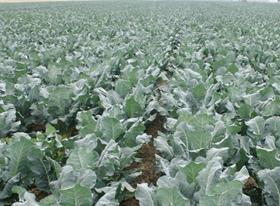
Scientists have made a discovery which it is hoped will lead to durable resistance being introduced into food crops, including the most important brassica crop worldwide, Brassica rapa.
Brassica rapa, commonly known as Chinese Cabbage, is by far the world’s most significant brassica in terms of global consumption as it forms a key element in diets in many Asian countries.
The findings from the University of Warwick, Chinese Academy of Agricultural Sciences and Syngenta Seeds team were reported in The Plant Journal.
Turnip mosaic virus (TuMV) can infect oilseed rape, peas, cabbages, broccoli, Brussels sprouts, turnips, radish and cauliflower; causing significant damage and losses to crops.
In their paper, the researchers have unravelled the mechanism behind a potentially durable resistance to the virus.
The resistance, which arises from a particular form of a gene called eIF4E, has been shown to be effective against different strains of TuMV from across the world.
The University of Warwick has patented the resistance mechanism and Syngenta Seeds is currently introducing the resistance gene into commercial varieties of brassicas via a breeding programme, with pre-commercial field trials planned for 2015.
Identification of the plant gene responsible for the virus resistance by scientists at Warwick has speeded up the breeding programme dramatically. It is possible to identify plants possessing the resistance gene using molecular techniques, facilitating marker-assisted selection by the plant breeders.
Lead investigator Dr John Walsh, of the University of Warwick, said: 'This is the culmination of careful and detailed research built on in-depth knowledge of the virus and its interactions with brassica plants. The research programme has involved collaborations with valued colleagues at the University of Warwick, particularly Dr Guy Barker, Dr Carol Jenner and Dr Jay Moore, and colleagues in Canada, China, Taiwan, Japan, Holland and Spain, culminating with BBSRC-funded, Warwick PhD student Charlotte Nellist completing the final piece of the jigsaw.
'The nature and mechanism of the resistance suggests that unlike many forms of plant resistance to disease, this particular resistance has the potential to be durable.'



